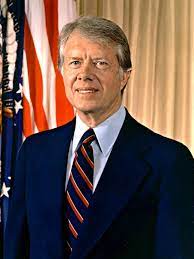Remembering Carter: The Peacemaker President
Jimmy Carter, the 39th U.S. president, passed away at 100. Known for the Camp David Accords and later humanitarian efforts, Carter's presidency was marked by economic challenges and the Iran hostage crisis. However, his post-presidential work garnered him global respect, earning a Nobel Peace Prize in 2002.

Jimmy Carter, the former U.S. president renowned for his role in the Camp David Accords, passed away peacefully at his home in Plains, Georgia, at age 100. Despite facing economic challenges and the Iran hostage crisis during his presidency, Carter's post-White House life was marked by significant humanitarian contributions that earned him a Nobel Peace Prize in 2002.
Carter, whose moral fortitude and commitment to peace were hallmarks of his tenure, was honored by U.S. President Joe Biden, who declared January 9 a national day of mourning. Carter's legacy includes diplomatic successes in the Middle East and efforts to advance human rights and democracy worldwide. His contributions extended to election monitoring and crisis resolution in hotspots like Bosnia and Haiti.
While Carter's presidency faced domestic hurdles, including inflation and interest rates, his diplomatic efforts left a lasting impact. He has been remembered as a principled leader who brought significant change through peaceful means. As the world reflects on his accomplishments, Carter's profound influence remains a testament to his belief in justice and equality.
(With inputs from agencies.)










